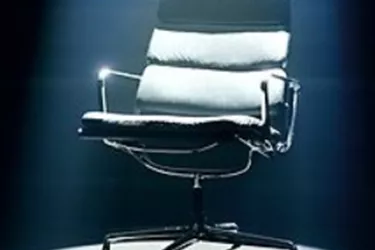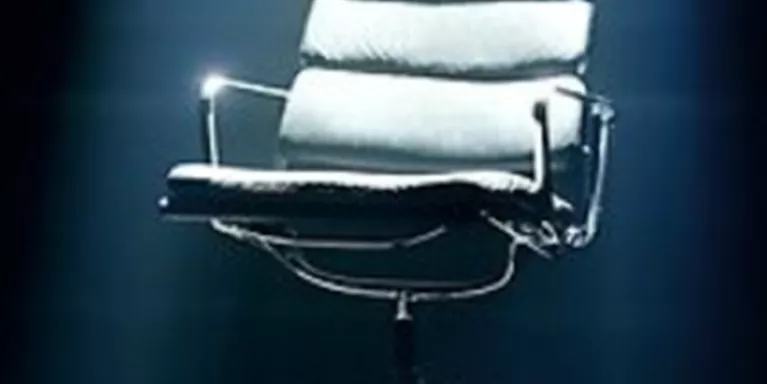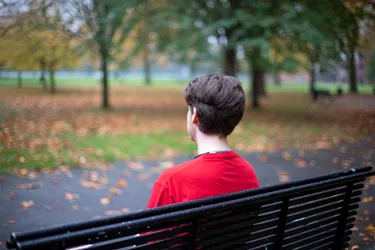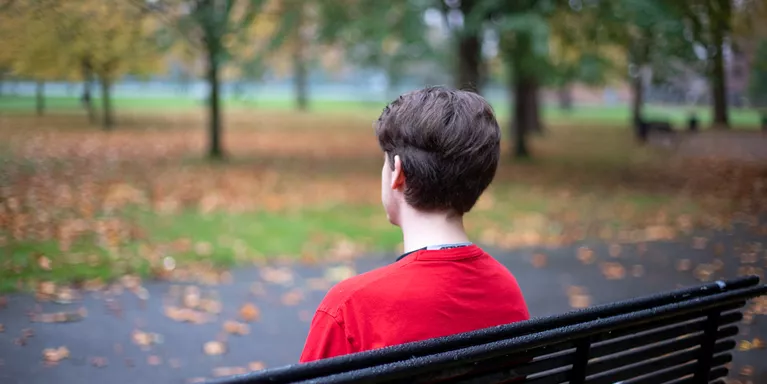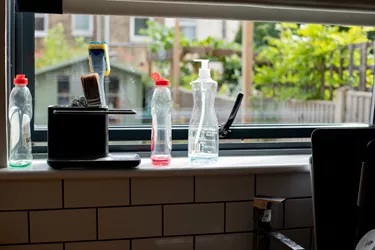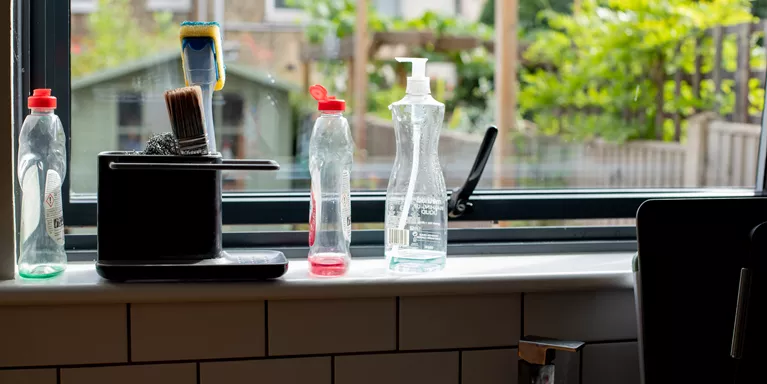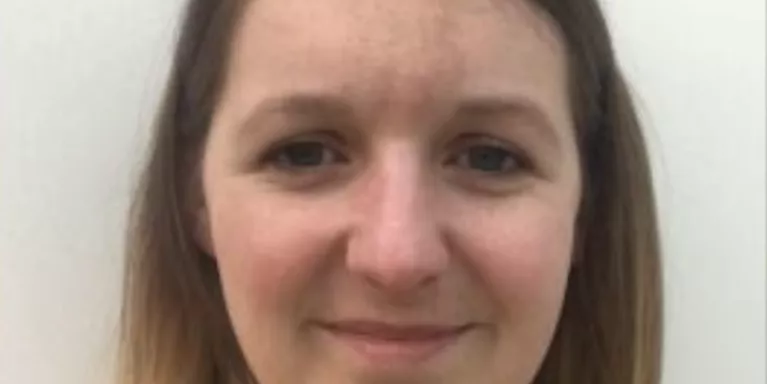Pulling hair has blighted my life
Trigger warning: This blog discusses hair pulling.
Chrissie blogs about how trichotillomania has blighted her life and how she is learning to live with it.
For someone with a condition that’s exacerbated by stress, lockdown has been a little nightmarish. Attempting to work and study from home with a baby and a six-year-old, whilst trying in vain to give each the attention they need, has re-ignited a habit that when all is plain sailing, I actually convince myself I have beaten. But of course, the seas get rough from time to time and as they say, old habits die hard.
It began when I was 12 and I remember it like yesterday - that Saturday morning in front of the TV when I developed the hair pulling habit that changed the rest of my life. When my Mum found me that morning she was horrified. The front of my pyjamas was littered with discarded eyelashes and eyebrow hairs and my eyes were puffy, red and bald.
“What have you done to yourself?” she gasped.
When I looked in the mirror, I realised just how much it had affected my looks
When I looked in the mirror, I realised just how much it had affected my looks. She was mortified. I felt a sense of shame wash over me that hasn’t left me since. I’d gone from being a normal looking child to slightly different. It’s an image that often faces me when I look in a mirror without makeup on. You’d think after 23 years I might be used to it, but the immense sense of revulsion and disappointment in myself doesn’t fade when faced with the damage caused by trichotillomania.
I didn't know it was called that for a long time. This was pre-Google, so for the first few years, in my own mind at least, I was a uniquely weird individual. It wasn't until my late teens that I found a thriving online community of people supporting each other with this disorder, many who suffered much worse than me and had to resort to wigs, headscarves or be mistaken for cancer patients. It made me realise I was actually lucky - things could have been a lot worse.
I accept that it must be hard for someone to whom this is alien, to understand how destructive a disorder it can be. When people realise it's self-inflicted, they struggle to sympathise. They don't realise how deeply it embeds. How unbreakable it is.
When I was in my twenties, my GP referred me for cognitive behavioural therapy, but I found my therapist unsympathetic, cold and worst of all, clueless about trichotillomania. When you have to explain and rationalise it to therapists yourself, it doesn’t give you much confidence that they can help. The condition is usually described as an impulse control disorder, though I think it would be more accurate to call it an obsessive compulsive disorder. Despite sometimes doing it inadvertently whilst reading or watching TV, I often stand in front of the mirror and obsess, sometimes for half an hour or more, about individual eyelashes and eyebrow hairs that look or feel too long; too short; too coarse; too blunt or are growing in the wrong direction - and I cannot relax until they're gone. Eventually of course, there is something wrong with all of them, so the best thing I can do is avoid mirrors in the first place.
The enormous sense of disappointment in my own lack of willpower paves the way into a deep depression
A bad episode is mentally exhausting and the enormous sense of disappointment in my own lack of willpower paves the way into a deep depression that can last weeks - or at least until significant regrowth appears.
My makeup routine is long and drawn out. Not because I’m a self-titled 'MUA' and enjoy spending an hour and a half painting my face as a preamble to a killer Instagram shot, but because I want to hide what I do. Stubbornly, I have never stopped trying to be attractive, even though deep down I’ve never felt it. In my late teens (by the time I’d mastered makeup and deception), like every other girl I knew I wanted to be a model.
The day I found myself sitting in a model agency waiting room after sending some very carefully chosen photos, I was like a lamb to the slaughter. I turned up with less makeup on than usual but enough to cover a multitude of imperfections. I’d attempted the ‘natural look’ as best I could and thankfully I had most of my eyelashes at the time, but the thing I feared most happened sooner rather than later - I would be exposed as totally browless! In a room full of other girls, I was handed a pack of baby wipes and told to take off my makeup. Bare faced and embarrassed, I waited my turn to go and sit at a desk in front of this broad-shouldered, power-hungry woman who selected girls like they were sweets at a pick ‘n’ mix.
“What’s happened to your eyebrows?” She scrutinised my face disapprovingly.
I panicked and turned crimson. What could I say that was less embarrassing than “I compulsively pull them out because I am mentally ill”? It was the beginning of November, so I settled for something even more ridiculous.
“I plucked them out. For…a Halloween party.”
“You plucked them out...? For fancy dress?!”
“Yes,” I replied apologetically, “...they’ll grow back soon!” I almost convinced myself.
“That’s the stupidest thing I’ve ever heard. How can I sign a model to my books who has such little respect for what she looks like?”
How naive could I be to expect a model scout not to notice that I had no eyebrows
It was all I could do not to cry in front of her, but the second I was out of the door tears fell down my face like the Niagara Falls. How naive could I be to expect a model scout not to notice that I had no eyebrows? The truth was even weirder than my Halloween story and that’s why no one ever got to hear it until now.
I never made it onto the cover of Vogue or the runways of Milan, but I did eventually revisit the idea of modelling and enjoyed some small success, if only to prove to myself that I was good enough. As with many things, the reality is quite different from the fantasy and I hated feeling like I’d caved to society’s obsession with superficiality and beauty.
The pressure we face as girls and young women is unbearable at times. What I really need now, what we all really need, is the reassurance that what you look like doesn’t matter. Because ultimately a condition like trichotillomania is only damaging because of our fear of looking different. If we could dispense with that, imagine how much happier we’d all be?


Information and support
When you’re living with a mental health problem, or supporting someone who is, having access to the right information - about a condition, treatment options, or practical issues - is vital. Visit our information pages to find out more.
Share your story with others
Blogs and stories can show that people with mental health problems are cared about, understood and listened to. We can use it to challenge the status quo and change attitudes.










